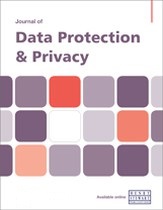Video surveillance and the right to privacy in the AI era: Proposed new rules
Abstract
Artificial intelligence is omnipresent in many areas of our lives. It may provide numerous services, involving the processing of undefined amounts of personal data and the insertion of algorithms. Therefore, its connection with privacy is very strong. A proposal for a Regulation on AI — the EU Artificial Intelligence Act (also known as the AI Act) is about to come into force in 2024. This paper aims to demonstrate the great impact of AI on the right to privacy when video-surveillance technology is being used. The introduction of AI tools lends a particular context to that practice. Thus, through a descriptive methodology, this paper attempts to demonstrate the nature, scope and aim of the draft AI Act. Then, the study puts special emphasis on the governance of video-surveillance systems, especially the governance of facial recognition, as it has been originally regulated under the AI Act. Additionally, following an intense study of national policies, a critical approach is pursued to the new rules on the issue, which have been proposed by MEPs. Achieving a human-centric dimension regarding AI is of primary interest. Consequently, this paper aims, finally, to offer original and fruitful suggestions for the regulation of video-surveillance systems in the new AI era.
The full article is available to subscribers to the journal.
Author's Biography
Konstantinos Kouroupis Dr Konstantinos Kouroupis is an assistant professor of European and data rights law at the Department of Law of Frederick University, in Cyprus. He has participated as a speaker on such issues at many international conferences. Some of his studies have been uploaded to the digital library of EUROJUST and are accessible from a large number of prosecutors, judicial officers and administrative staff of the European agency. In 2018, he represented the Republic of Cyprus as an expert during an international exercise under the supervision of the European Defence Agency. He has participated in European projects regarding the protection of data rights. At present, he is a member of the European COST action entitled ‘Global Digital Human Rights Network’, serving as Management Committee Delegate. He is the author of several books on law and a member of the editorial board of international law journals. He has published numerous articles in esteemed peer-reviewed journals. His latest book entitled ‘Privacy and Security in Light of the European Digital Agenda’, with a special introductory note written by an Officer of the Cabinet of the European Data Protection Supervisor in Brussels, suggests, among other things, original personal theories on digital issues, especially those concerning AI and facial recognition.
